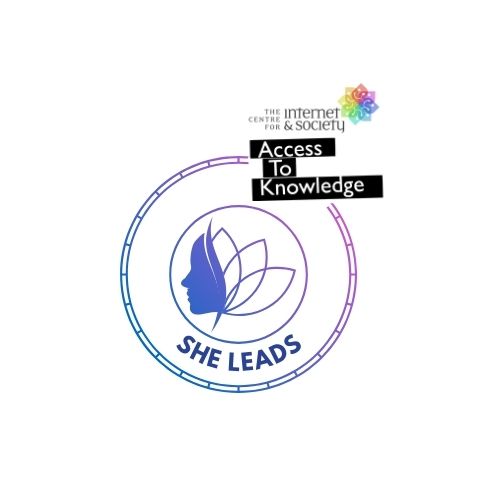Bridging the Gender Gap
Open knowledge systems play a significant role in shaping our understanding of the world, yet they face inevitable challenges in achieving balanced gender representations both in terms of content and contributors. The gender gap within platforms like Wikipedia, where only 15% of contributors are women as of 2020, has tangible effects on the information available online. This disparity, often referred to as the “gender gap,” is a well-known issue within the Wikimedia movement. By ensuring a more inclusive representation of women – cis, transgender, and non-binary – both in content and participation, open knowledge systems can strive towards a more equitable and diverse digital landscape that reflects the richness of human experiences.
One prominent effort is Women in Red, a project founded in 2015 to increase the representation of women on Wikipedia. This project has significantly contributed to closing the gender gap by adding over 200,000 new articles about women, increasing the percentage of women’s biographies on English Wikipedia from 15% to 19.47%.
CIS-A2K’s Commitment to Bridging the Gender Gap
Over the past few years, the Centre for Internet and Society’s – Access to Knowledge (CIS-A2K) has organized various events in honor of International Women’s Day. These events have aimed to raise awareness about the gender gap in knowledge sharing and encourage more inclusive participation. By highlighting the importance of gender diversity in content creation and knowledge dissemination, CIS-A2K plays a significant role in promoting gender equity within the Wikimedia community.
Earlier Activities
In 2023, CIS-A2K organized ‘Women’s Month Datathon on Commons’, a collaborative effort between CIS-A2K and the Commons Photographers User Group for community engagement. This campaign is designed to dedicate to Women’s Month and all the incredible women worldwide. A total of 34 participants signed in to participate and among the 34 Users, 13 editors participated in the contest. The total edits are 41,146 within 10 days
The International Women’s Month 2022 edit-a-thon organized in 2022 is another remarkable example of CIS-A2K’s commitment to bridging the gender gap within the wikimedian community. This was a two-day long edit-a-thon. 23 users signed up to participate in the edit-a-thon. The theme of the event was to create content related to women on Wikimedia projects. The edit-a-thon was not restricted to only the Wiki projects. A2K collaborated with the Art+Feminism campaign and created a few dashboards under the Art+Feminism 2022. The edit-a-thon witnessed active participation in seven languages – Assamese, Bengali, Gujarati, Malayalam, Odia, Punjabi, and Telugu. During these two days, over 170 articles were updated. 39 users participated in this event, of which 22 participants were from the Punjabi community.
In 2021, we celebrated Women’s Day through an audio-visual project called ‘Women at Work’. In addition to an online event in collaboration with Lek Ladki Abhiyan for women activists across the state on knowledge creation regarding social, legal, and health issues, we created seven videos showcasing the journeys of seven women mustering the strength to redefine their lives. We also partnered with Jnana Prabodhini’s Sanwadini group working on Lingua Libre, Audiobooks and Lexemes during this year.
She Leads
Building on this legacy and underscoring CIS-A2K’s commitment to bridging the gender gap in digital landscapes, this year A2K presents to you ‘She Leads’, a support program dedicated to community engagement. We aspire to support the efforts of our female Wikimedians to design and rollout programs and activities helpful to Wikimedia projects and communities through ‘She Leads’. Through ‘She Leads’ we invite our community members, especially female Wikimedians, to orchestrate activities tailored to their communities and projects.
This comprehensive program spans the entire month of March, strategically chosen as one of the busiest months for Wikimedians to organize initiatives, especially around bridging gender gap. The initiative aims to go beyond a one-time effort by establishing an ongoing platform for female Wikimedians to actively design, implement, and lead activities in alignment with their goals and aspirations. The primary objective is to foster women’s leadership within the Indian Wikimedia community, contributing to the creation of a more inclusive and diverse environment. Proposals for activities are expected to adhere to certain rules and requirements, including the submission of a collaboration proposal in the given template with A2K.
The support period for “She Leads” extends from March 1, 2024, to May 15, 2024. The initiative ensures robust support from CIS-A2K, offering assistance in refining or developing activity concepts, assigning mentors to each proposed activity, providing support and guidance in documentation, and offering financial support for successful activity execution. “She Leads” stands as a commitment to celebrate and empower the leadership of female Wikimedians, fostering a vibrant and inclusive Wikimedia community in India.
CIS-A2K has and continues to engage the community in bridging the gender gap in content creation, producing research to understand the gender gap, investing in increasing awareness of safe space policies, and improving the participation of women in our capacity-building and leadership nurturing events. Through initiatives like these, awareness is raised about the underrepresentation of women – cis, transgender, and non-binary – on Wikimedia platforms.
In conclusion, while progress has been made in closing the gender gap within the free knowledge movement and Wikimedia community, there is still work to be done. Initiatives like Women in Red, Women at Work, Art and Feminism, She Leads, and collaborations with other grassroots organizations are crucial in promoting gender equity and inclusivity in knowledge-sharing platforms. By continuing these efforts and encouraging diverse participation, we strive towards a more balanced representation of all individuals in the digital knowledge landscape.

Can you help us translate this article?
In order for this article to reach as many people as possible we would like your help. Can you translate this article to get the message out?
Start translation
